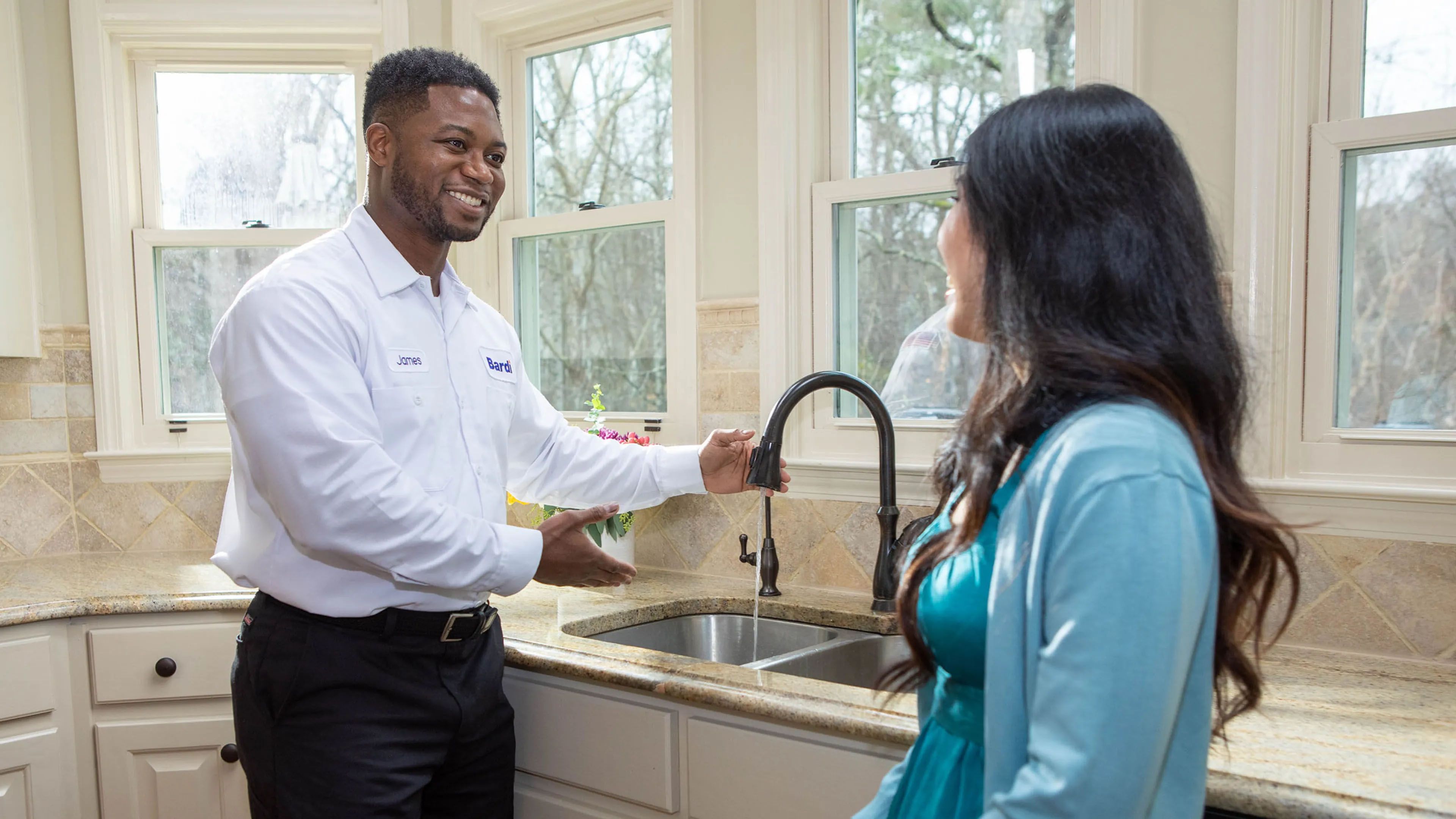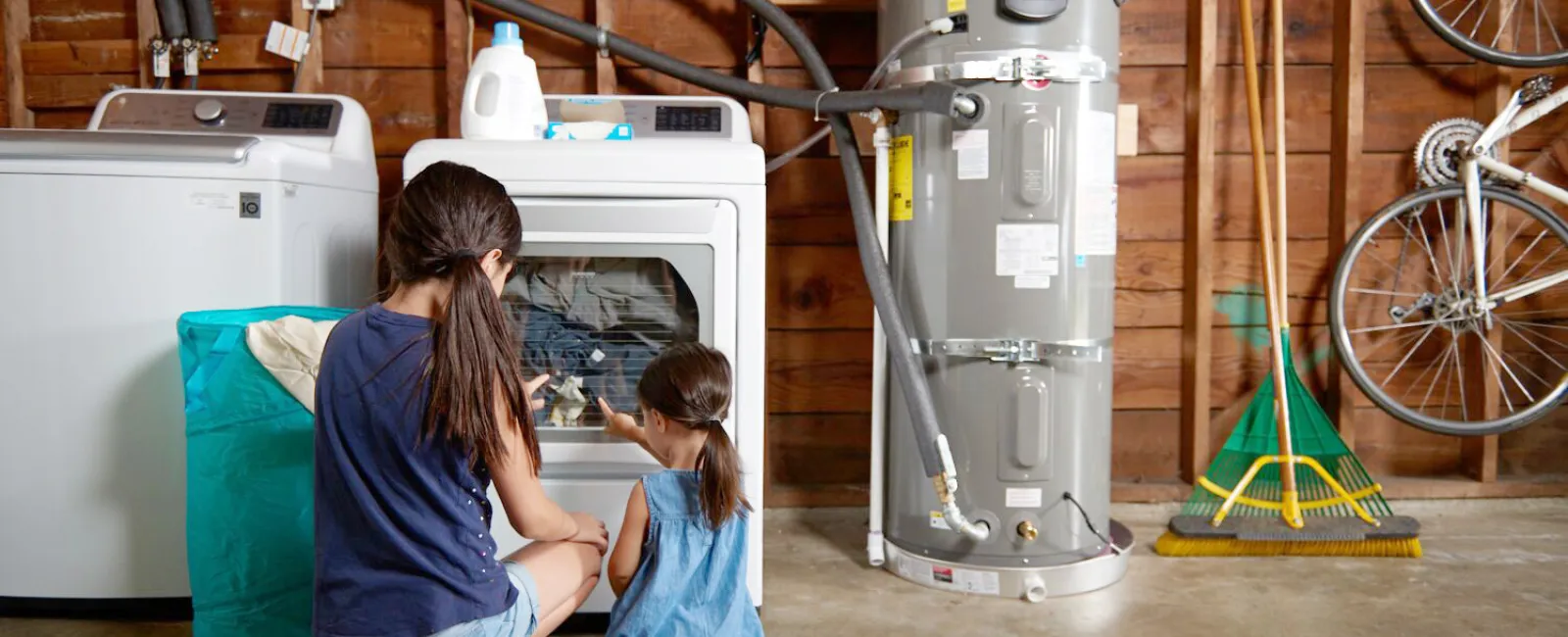August 15, 2024
Understanding Your Home's Plumbing System
Your Pipes Might Be Out of Sight, But They Shouldn't Be Out of Mind

Get to Know Your Plumbing System
Your home's plumbing system is a complex network of pipes, valves, and fixtures that work together to keep your water flowing in and out smoothly. Whether you're in a city home connected to municipal water and sewer lines or a rural home with a well and septic system, understanding how your plumbing works is crucial. Let's dive into the essentials so you can keep your plumbing in top shape and avoid potential headaches down the road.
Water Main Supply: The Lifeline of Your Home
Every residential plumbing system starts with the water main supply, which is either connected to the city's municipal water system or, in rural areas, to a private well. This is the primary source that delivers water into your home through a network of pipes.
City Water: If your home is connected to the municipal water supply, your water enters through a main water line, which is usually located underground and runs from the street to your house. The water meter, typically located at the edge of your property, measures the amount of water your household uses.
Private Well: For homes in more rural areas, water is often drawn from a private well. In Georgia, 95% of rural homes depend on their own well for their household water needs—including drinking water. The well pump sends water into your home, where it's stored in a pressure tank until needed. Proper maintenance of the well and pump system is crucial for ensuring a reliable water supply. In rural areas, the quality of well water can vary, and many homeowners opt for water filtration systems or water softeners to ensure their water is safe and palatable. Point-of-use Reverse Osmosis systems have become increasingly popular among our customers for providing clean drinking water directly at the tap. We highly recommend considering these systems to improve water quality in all residential homes in Georgia.
Sewer Lines and Septic Systems: Where the Waste Goes
Just as your home has a system for bringing water in, it also needs an efficient system for getting wastewater out. This is where sewer lines and septic systems come into play.
City Sewer: Homes in urban areas are usually connected to the municipal sewer system. Wastewater flows from your home's drains into the main sewer line, which runs underground and connects to the city's sewer system. Common issues with sewer lines include clogging or damage due to tree roots, shifting soil, or the buildup of debris. The type of material used in the pipes can also be a concern, especially in older homes where outdated materials like clay or cast iron are more susceptible to cracks and corrosion. Newer homes typically use PVC or ABS plastic pipes, which are more resistant to these issues, but even these can be affected by environmental factors over time.
Septic System: In rural areas, homes often rely on septic systems instead of city sewer lines. A septic system consists of a large underground tank where wastewater is collected. Solid waste settles at the bottom, while liquids flow into a drain field where they're naturally filtered and absorbed into the ground. Septic systems, if not maintained properly, can fail, leading to unpleasant and costly problems. Older homes with septic systems may have outdated or deteriorating materials that require closer monitoring and more frequent maintenance to avoid potential failures.
The Pipes Inside Your Home: Under Slabs, Crawl Spaces, and Split Levels
The plumbing inside your home is a network of pipes that distributes water to fixtures and drains it away. Here's what you need to know about the main types of pipes running through different parts of your home:
Under Slab: Homes built on concrete slabs have most of their plumbing pipes embedded in or running underneath the slab. This design can make it difficult to access pipes for repairs, and leaks here can go unnoticed until they cause significant damage to the foundation.
Crawl Space: Homes with crawl spaces often have plumbing pipes running beneath the main floor. While these pipes are easier to access for repairs, they are more exposed to temperature fluctuations, which can lead to freezing in the winter.
Basements: Homes with basements generally provide more stable conditions for plumbing pipes, which are typically easier to access than those under slabs. However, leaks in a basement can still cause significant water damage, especially if not addressed promptly.
Split Level Homes: In split-level homes, the plumbing system is more complex, often requiring additional piping to connect different levels. This design can make it challenging to locate and repair leaks.
Venting: The Unsung Hero of Your Plumbing System
Venting is a critical but often overlooked part of your plumbing system. Vent pipes allow sewer gases to escape and ensure that water flows smoothly through your drains. Without proper venting, your drains could gurgle, toilets might not flush properly, and you could even experience sewer gas odors inside your home.
Outdated Piping: What to Watch For
If your home was built before the mid-1990s, there's a chance it might still have outdated piping materials like polybutylene (often referred to as "poly" pipes). These pipes are prone to failure and should be replaced to prevent potential leaks and water damage.
- Common Outdated Materials: Besides polybutylene, older homes might also have galvanized steel or lead pipes, both of which can corrode over time and affect water quality.
- Signs It's Time to Replace: Discolored water, frequent leaks, or low water pressure are all signs that your home's pipes might need to be updated.
Common Plumbing Issues and Maintenance Tips
Here are some of the most common plumbing issues in residential homes and what you can do to prevent or address them:
Leaky Faucets and Toilets: A dripping faucet or running toilet might seem minor, but over time, they can waste a significant amount of water. Fixing these issues promptly can save water and reduce your utility bills.
Clogged Drains: Hair, grease, and other debris can build up in drains, leading to clogs. Regularly cleaning your drains and using strainers can help prevent this.
Slow Drains: If water is draining slowly from sinks, showers, or tubs, it could be a sign of a developing clog. Try using a plunger or a drain snake to clear it out before it becomes a bigger problem. However, if multiple toilets and showers on the main level of your home are backed up, this often indicates a blockage in your main sewer line that requires immediate professional attention. We currently offer a $93 or it's Free Drain Cleaning with Camera Inspection for main line drain cleanings.
Water Heater Issues: Over time, multiple components of a water heater can fail, such as the heating elements, thermostat, or the tank itself. Sediment buildup in your water heater can also reduce its efficiency and lifespan. Flushing the tank annually can help maintain its performance. The useful life of a tank water heater is typically around 10 years, but with proper maintenance, it can last even longer.
And here are more issues we often see, to name a few word-spacing: normal;">: Undersized pipes, leaking hose bibs, collapsed pipes, frozen outdoor spigots, sewer gas odors, poorly sloped drain lines, water pressure issues, root intrusion in sewer lines, pipe corrosion, improper sump pump installation, and undetected water meter leaks.
Maintenance Homeowners Can Perform Themselves
Regular maintenance can help prevent major plumbing issues. Here's what you can do on your own:
Check for Leaks: Regularly inspect exposed pipes, faucets, and appliances for any signs of leaks. Even a small leak can waste a lot of water over time. Interior pipes, especially in older homes, are prone to leaks over time. Look out for pinhole leaks, which can start small but will worsen if not addressed. While a patch repair might work temporarily, if you're starting to see multiple leaks, it could be time to consider a whole-home repipe.
Insulate Pipes: In colder climates, insulating pipes in crawl spaces or attics can prevent them from freezing and bursting in the winter.
Schedule Annual Plumbing Inspections: It's a good idea to have a professional plumber inspect your entire home annually. We frequently visit homes that have experienced catastrophic leaks—leaks that could have been prevented by regular inspection and maintenance of their plumbing and fixtures. Bardi's Friends of Bardi Maintenance plans include free plumbing visits ensuring your home is inspected and maintained regularly.
Avoid Harsh Chemicals: Steer clear of using harsh chemical drain cleaners or pipe cleaners, as these can damage your pipes over time. Instead, opt for mechanical methods like plungers, drain snakes, or natural solutions for clearing clogs.
Outdated Materials: As mentioned earlier, watch for polybutylene, galvanized steel, or lead pipes. Replacing them with modern materials like PEX or copper can prevent future problems.
Hidden Leaks: Leaks under slabs or behind walls can cause significant damage before they're detected. Keep an eye on your water bill for unexplained increases, which could indicate a hidden leak. Bardi offers free leak detection consultations and can skillfully detect and repair leaks from foundations to attics, including outdoor areas. With state-of-the-art tools, we can often repair leaks with minimal disruption to your home.
Water Pressure Issues: Consistently low water pressure can signal a problem with your main supply line or hidden leaks within your plumbing system.
- Water Waste: A leaking faucet can waste thousands of gallons of water each year, driving up your water bill and unnecessarily depleting resources.
- Foundation Damage: Leaks in pipes under slabs or near the foundation can cause the ground to shift, leading to cracks and structural damage.
- Mold and Mildew: Persistent leaks can lead to moisture buildup, creating the perfect environment for mold and mildew, which can affect your home's air quality and your health.
- Leak Detection and Repair: Our state-of-the-art tools allow us to find and fix leaks with minimal disruption to your home.
- Hydrojetting and Drain Cleaning: We can clear even the toughest clogs in your sewer and drain lines.
- Sewer and Main Line Repair or Replacement: Whether it's a spot repair or a complete replacement, we've got you covered.
- Whole-Home Repiping: If your home has outdated or failing pipes, we can replace them with modern, durable materials.
What to Watch Out For in New and Older Homes
When buying or living in a home, especially an older one, it's essential to be aware of potential plumbing issues:
The Cost of Ignoring Plumbing Issues
Ignoring plumbing issues can lead to costly repairs and damage to your home:
Professional Plumbing Services: When to Call in the Experts
While regular maintenance can prevent many issues, sometimes it's best to call in the professionals. At Bardi, we offer a range of plumbing services to keep your home's system in top shape:
Keeping your plumbing system in good condition is essential for the health and safety of your home. With the right knowledge and regular maintenance, you can prevent many common issues and ensure your plumbing runs smoothly for years to come.






